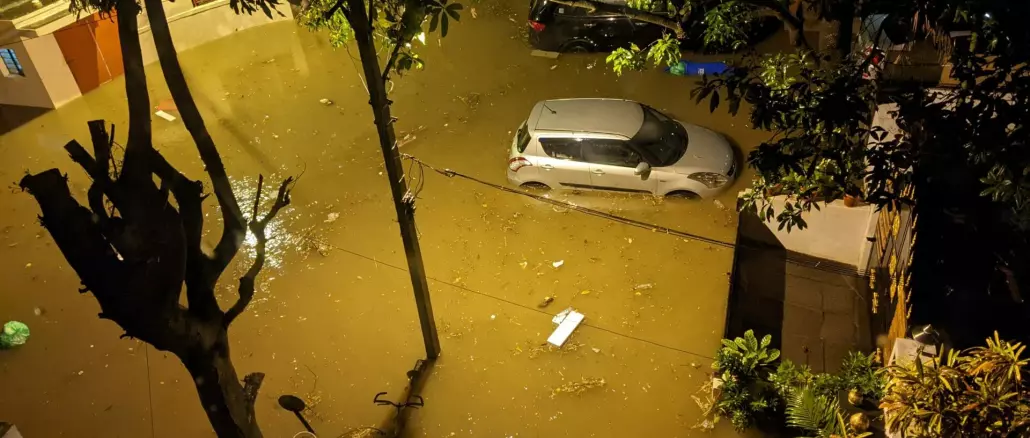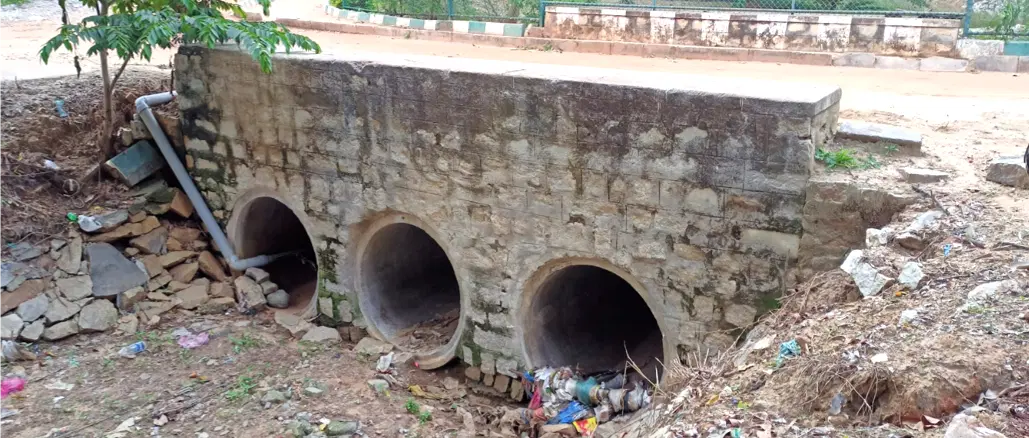How Open Data and Wastewater Reuse Can Prevent Flooding in Bengaluru
A residential neighbourhood in central Bengaluru is waterlogged after the rains. Photo by: Shreya Nath
On September 4th, Bengaluru experienced one of its wettest days on record, causing large parts of the city to get severely flooded. This was after weeks of heavy rainfall that turned roads into rivers in some of the city’s rapidly developing ‘high-tech’ areas. This is going to happen again and again unless we fundamentally change how we approach urban planning. We need to proactively work with the assumption that such severe extreme weather events are the new normal and what can be done to prevent flooding in the city under these circumstances…
Acknowledgements
Shreya Nath for Citizen Matters.
The author conducted this work when she was with the Centre for Social and Environmental Innovation at the Ashoka Trust for Research in Ecology and the Environment (CSEI-ATREE). WELL Labs is now taking it forward in collaboration with ATREE.
If you would like to collaborate with us outside of this project or position, write to us. We would love to hear from you.
Follow us and stay updated about our work:





